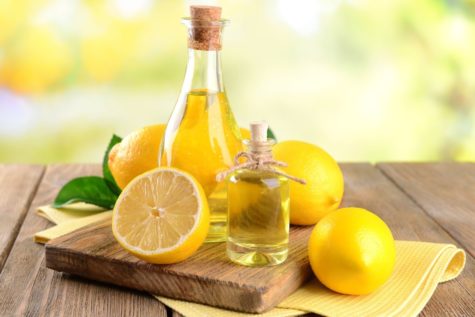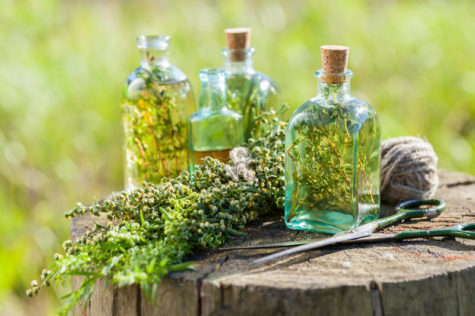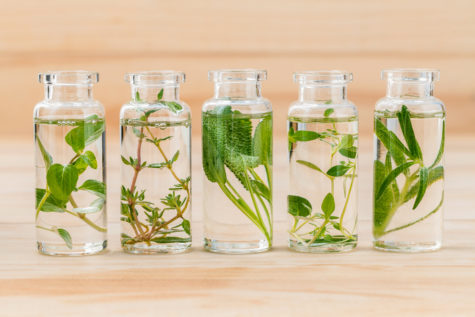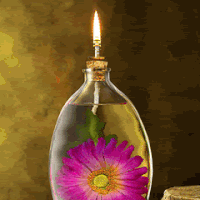shirleytwofeathers
Bugs Be Gone Room Spray
You can use essential oils to make a bug-repelling room spray that can be used inside or out. This blend of Lavender, Peppermint, Lemongrass, and Lemon Eucalyptus oils is great for keeping away all kinds of bugs (mosquitoes, flies, gnats, spiders, and more). Plus, it has a wonderful fresh scent.
To make room spray:
- Fill 8 oz glass spray bottle about 3/4 full with distilled water
- Fill most of the rest of the way full with Witch Hazel
- 10 drops Lavender essential oil
- 10 drops Peppermint essential oil
- 10 drops Lemongrass essential oil
- 10 drops Lemon Eucalyptus essential oil
- Put on sprayer top and shake well to mix
To use: Shake bottle gently before each use. Spray into the air to freshen room. Use as often as needed.
Source: One Essential Community
Lake House Room Spray

My summers were often spent at my family’s lake house on the Minnesota Canada border. Days (and nights) were filled with fishing, swimming, hiking, camp fires, and board games. The air was scented with a wonderful blend of evergreens, fresh-cut fire wood, and water. This homemade room spray recipe of Pine, Cedarwood, Lavender and Spearmint captures that memory perfectly for me. Plus it’s calming, grounding, and balancing.
To make room spray:
- Fill 8 oz glass spray bottle about 3/4 full with distilled water
- Fill most of the rest of the way full with Witch Hazel
- 10 drops Pine essential oil
- 10 drops Cedarwood essential oil
- 10 drops Lavender essential oil
- 10 drops Spearmint drops essential oil
- Put on sprayer top and shake well to mix
To use: Shake bottle gently before each use. Spray into the air to freshen room. Use as often as needed.
Source: One Essential Community
How To Use Lemon Essential Oil
Lemon essential oil is a great oil to have on hand next to your diffuser year round. A cheerful scent with a delicious sweetness, its ability to uplift the mood is almost unparalleled. Not only will Lemon uplift the mood, but it will also purify the air in the home and in the workplace.
- Freshen Up Blend: In your diffuser, mix Lemon oil, Lavender oil, Neroli oil and Tea Tree oil to freshen and purify the air.
- Direct Palm Inhalation: To receive the cheerful, invigorating effects of our pure Lemon oil, inhale Lemon mixed with Lavender.
- This is a great pick-me-up: Try it instead of reaching for a cup of tea or coffee.
Lemon Oil Precautions
Like many citrus essential oils, Lemon oil is phototoxic. This means that when an essential oil is applied topically, exposure to sunlight (UV rays to be exact) causes the skin to become hyper-sensitive and burn much more easily. It is recommended to stay out of direct sunlight for at least 12 hours after using Lemon oil on the skin.
Other Ways To Use Lemon Essential Oil
- Massage Blend:
Use a drop or two in your massage essential oil blend and carrier oil if your intention for the healing session is invigorating and uplifting. Lemon helps to clear the way for new emotional patterns to develop. Please note safety considerations (above) before applying Lemon essential oil to skin.
- Household Cleaner:
Add Lemon essential oil to water in a spray bottle and use as a cleanser to purify surfaces in the home and workplace. Add a drop or two to the laundry cycle for a fresh effect.
- For Pain Relief
A natural way to reduce pain signals in the brain was found with Lemon oil aromatherapy. The study, published in 2002, was conducted on lab rats during a persistent experience of pain; the rats that inhaled the aroma of Lemon oil showed a decrease in behaviors indicative of pain.
- Enhance Mood & Concentration
If you have ever deeply inhaled the scent of Lemon oil, you’ve probably noticed that it has a stimulating, and yet calming, influence in the mind. In an effort to better understand the relationship between smell and mood, researchers examined the psychological and physiological impact of smelling either Lemon oil, lavender oil, or plain water before and after experiencing a stressor.
Of the 56 healthy volunteers, those that smelled Lemon oil reported increased positive mood – despite having their hands plunged in ice water! The researchers also measured stress hormones and found that norepinephrine, which plays a role in cognition and learning, was maintained at elevated levels after inhaling Lemon oil.
- Lessen Stress & Anxiety
One of the great paradoxes of Lemon oil is its ability to invigorate and relax. In addition to its anti-depressant and cognition-boosting qualities, Lemon oil aromatherapy was shown to calm the nerves and relieve stress in two separate studies.
- Lose Weight
It may seem like a bold statement, but Lemon oil can actually help you lose weight by suppressing weight gain, dissolving body fat, and reducing appetite. This was demonstrated in a study where exposure to a blend of Lemon oil and Grapefruit oil aromatherapy increased reduced body weight in lab rats.
- Alleviate Morning Sickness
A clinical trial from 2014 examined the effects of Lemon oil aromatherapy on pregnant women who suffer from morning sickness. Involving more than 100 participants, the study determined that inhaling Lemon oil as soon as feelings of nausea were present had the effect of drastically reducing queasiness and retching as well as an overall decrease in the intensity of those symptoms.
From:
Lemon Oil for Your Hair
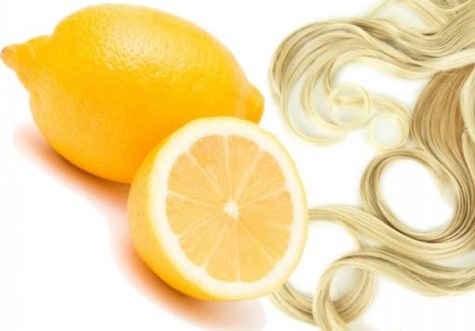
Caused by an overzealous sebaceous gland, greasy hair can leave your tresses limp, flat, and stringy no matter how much you wash it. As with oily skin, Lemon oil can reduce the amount of sebum on the scalp, as well as help balance the production of oils.
Shampoo Recipe:
- ½ cup of liquid castile soap
- 1 cup of water
- 20 drops of Lemon oil
Hair Rinse Recipe:
- 1 cup of water
- 2 tablespoons of apple cider vinegar
- 3 drops of Lemon oil
From: Natural Living Ideas
Lemon Oil Skin Toner
Lemon oil is an astringent – meaning that it constricts bodily tissues when applied topically. For this reason, Lemon oil may be used for deep cleansing of the skin while also shrinking pores. Terrific for oily skin types, Lemon oil acts as a natural toner that reduces the amount of sebum (oily or waxy substances) produced by the sebaceous glands. Since overactive sebaceous glands are a major cause of acne, cysts, hyperplasia, and other inflammations of the skin, adding Lemon oil to your daily skin care regimen can help heal and prevent breakouts.
Recipe:
- ½ cup of water
- ½ cup of witch hazel
- 40 drops of Lemon essential oil
Use as you would any skin toner or astringent.
Lemon Oil Precautions
Like many citrus essential oils, Lemon oil is phototoxic. This means that when an essential oil is applied topically, exposure to sunlight (UV rays to be exact) causes the skin to become hyper-sensitive and burn much more easily. It is recommended to stay out of direct sunlight for at least 12 hours after using Lemon oil on the skin.
From: Natural Living Ideas
Fat Dissolving Massage Recipe
It may seem like a bold statement, but Lemon oil can actually help you lose weight by suppressing weight gain, dissolving body fat, and reducing appetite. The rind of many citrus fruits – including Lemon – contain high amounts of the organic compound limonene.
Limonene has the ability to facilitate lipolysis – the breakdown of white adipose tissue, which is the type of fat the body stores for energy. The connection between limonene and lipolysis was demonstrated in a study where exposure to a blend of Lemon oil and grapefruit oil aromatherapy increased lipolysis and reduced body weight in lab rats.
Fat Dissolving Massage Recipe:
- ¼ cup of sweet almond oil
- 7 drops of pure Lemon oil
- 7 drops of Grapefruit oil
Lemon Oil Precautions
Like many citrus essential oils, Lemon oil is phototoxic. This means that when an essential oil is applied topically, exposure to sunlight (UV rays to be exact) causes the skin to become hyper-sensitive and burn much more easily. It is recommended to stay out of direct sunlight for at least 12 hours after using Lemon oil on the skin.
From: Natural Living Ideas
Treat Candida With Lemon Oil
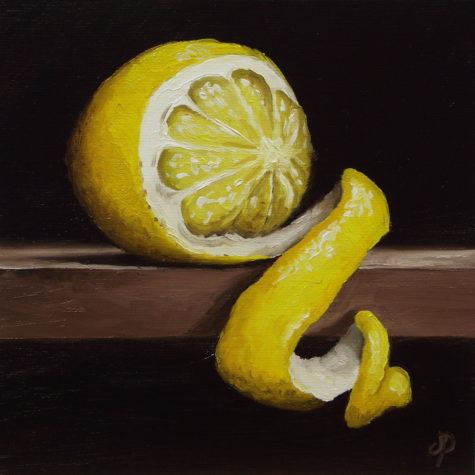 Most commonly expressed as a yeast infection when it’s running rampant, Candida is a class of fungus that is often a normal part of good oral and intestinal health. Its overgrowth, however, can affect the skin, throat, mouth, genitals, and, if left untreated, can even invade the blood.
Most commonly expressed as a yeast infection when it’s running rampant, Candida is a class of fungus that is often a normal part of good oral and intestinal health. Its overgrowth, however, can affect the skin, throat, mouth, genitals, and, if left untreated, can even invade the blood.
Because of its antifungal properties, Lemon oil can be used as a natural remedy for yeast infections. A recent study found that Lemon oil was able to inhibit the growth of various Candida strains. This is likely because of Lemon oil’s high monoterpenoid content, which has an antimicrobial effect. You can use the following recipe as an external skin treatment once per day. If there’s no improvement after a week, you should see a healthcare practitioner.
Recipe:
- 3 cups of lukewarm water
- 2 tablespoons of vinegar
- 3 drops of Lemon oil
- 4 drops of Tea Tree oil
Lemon Oil Precautions
Like many citrus essential oils, Lemon oil is phototoxic. This means that when an essential oil is applied topically, exposure to sunlight (UV rays to be exact) causes the skin to become hyper-sensitive and burn much more easily. It is recommended to stay out of direct sunlight for at least 12 hours after using Lemon oil on the skin.
From: Natural Living Ideas
Make Your Own Lemon Oil
It’s not difficult to make your own Lemon Oil. These simple recipes use the cold process method. Because this method does not use heat the enzymes and micronutrients are better preserved, but the Lemon oil you make will not be as strong as the distilled Lemon essential oil that you might purchase.
Recipe #1
Ingredients
- 1 lemon
- Cold-pressed olive oil
Directions
Grate the outside of the lemon over a bowl. Fill a small glass bottle halfway with the grated lemon zest. Fill the rest of the bottle with olive oil. Set the bottle on a windowsill or somewhere else that gets a lot of sun.
Leave it there for a few days, but shake the bottle a few times per day. Store lemon oil in an airtight container at room temperature.
Recipe #2
Ingredients
- Lemons
- Coconut Oil
Directions
Wash and dry lemons. Using a vegetable peeler, cut thin slivers of the yellow skin in long ribbons. (Or if you have a zester, use that!) Make sure not to peel off the bitter white pith, just the outside will do. Pack peels tightly in a jar, then pour in just enough coconut oil to cover.
Place in a sunny window for 1-2 weeks, shaking every day. Strain peels and pour oil into a jar. Store in a dark cabinet or the fridge.
Recipe #3
I prefer an olive oil infusion for salads, but because it’s so vulnerable to oxidation via sunlight I let mine “steep” longer in a dark cabinet to attains its distinct flavor. Like the cold process coconut oil version, this method preserves enzymes and micronutrients.
Ingredients
- Lemons
- Olive Oil
Directions
Wash and dry lemons. Using a vegetable peeler, cut thin slivers of the yellow skin in long ribbons. (Or if you have a zester, use that!) Make sure not to peel off the bitter white pith, just the outside will do. Pack peels snugly in a jar, then pour in just enough olive oil to cover. Seal tightly and place in a dark cabinet for 1-2 months, shaking every few days.
Strain peels and pour oil into a jar. Store in a dark cabinet or the fridge.
Sources:
How to Make Your Own Essential Oils
Making your own pure essential oils at home involves a distilling process and this means purchasing or building your own still! While it is possible to make your own still from various items around the home, it may be safer to purchase a home still from an online store. Something like one of these alcohol stills on Amazon will set you back over a hundred dollars, but could be viewed as a nice investment.
Having said that, if you intend to build a home still, you can find the parts you need in a home-brew store or the specialist section in a hardware store. For in-depth directions, I would advise that you take a look at this book on Amazon The Secrets of Building an Alcohol Producing Still.
As a beginner we recommend that you start with an alternative and more traditional oil infusion process. An oil infusion will give you very nice fragrant results, and although not as strong as distilled essential oil you can vary the strength for your needs, and you will not need to dilute.
The key to making good oil infusions is choosing the right materials. You’ll need to use pale colored oil that has a mild scent that won’t overpower the flowers, herbs or spices you intend to use with it. Olive oil, jojoba oil, safflower oil, almond oil or canola oil can often work very well.
-
Choosing Herbs
You can use almost any garden herb when you make your own essential oil. You should use the leaves and flowers, but avoid using any woody stems or branches. Always chop the leaves to release their scent before you add them to the oil. The most popular are Lavender, Rosemary, Peppermint, Thyme and Lemon Balm.
-
Choosing Spices
Perhaps the most common spices found in essential oils are the most aromatic. The most popular seem to be Cinnamon, Coriander, Cumin, Nutmeg and Cloves. You will need to crush the spices to release their aromas fully before adding them to your oils with a mortar and pestle.
-
Choosing Flowers
Scented flowers are very popular additions into many homemade essential oils. You can decide to use one or a combination of flowers in your own oils. Be sure you use the petals only as these hold much of the fragrance you want.
Cut the flowers while they are still not completely opened and remove the petals for use in your oils. Most fragrant flowers are fine to use in essential oil, such as Roses, Carnations, Frangipani, Hyacinth, Lavender, Violets, Marigolds and plenty of others.
Important Points
Now, when you make your own essential oil there are a few things to keep in mind:
- The plant material you use must be clean and free of pesticides, herbicides, fungicides, and other chemicals.
- The final product will not be as potent as essential oils you can purchase.
- You can use fresh or dried plant material.
- You can use herbs, spices, flower petals, or citrus fruit rinds.
- Always store infused and essential oils in dark, glass containers in a cool, dark place.
Extraction and Infusion Methods:
These are all primitive methods of distilling or extracting the oil out of the plant material. The heat used in the distilling methods below will damage the essential oil and will lessen some of the benefits from the essential oils. Also, the oils obtained from the extraction methods below will not be 100% pure.
The methods are listed in order of the quality of essential oil you’ll get (best first).
-
Method #1
Place plant material into a crock pot filled with distilled water. Cook on low for 24 hours. Leave crock pot open and allow it to sit for a week. Collect the oil off the surface of the water and put it into a dark, glass container. Cover with a piece of cloth and allow it to sit for a week to evaporate off any extra water. It will last for about 12 months.
-
Method #2
Place ground up plant material in a cotton or linen bag. Tie it shut and place it in a pot of distilled water. Bring water to a boil and simmer slowly for 24 hours. Collect the oil off the surface of the water (you may have to squeeze the bag) and put it into a dark, glass container. Cover with a piece of cloth and allow it to sit for a week to evaporate off any extra water. It will last for about 12 months.
-
Method #3
Half-fill a large glass bottle with olive oil (or almond, jojoba, or rapeseed). Cram as much plant material as possible into the bottle. Cap it and let it sit in a cool, dark place for 24 hours. Shake it. After three days strain it through cheese cloth and put liquid in a dark, glass container. (If scent is not strong enough add more plant material and repeat process.) It will last for about 6 months.
-
Method #4
Stir 1/2 ounce of plant material into 2 cups olive oil (or almond, jojoba, or rapeseed). Cook in crock pot on low for about 6 hours. Strain the mixture with unbleached cheese cloth and put liquid in a dark, glass container. It will last for about 6 months.
-
Method #5
Place 1 Tablespoon ground up plant material, 1/2 cup of olive oil (or almond, jojoba, or rapeseed), and 1/2 teaspoon of white vinegar into a small bottle (cap on). Put it in a warm place (sunny window) for three weeks. Shake it well twice a day. Strain the mixture with unbleached cheese cloth and put liquid in a dark, glass container. It will last for about 6 months.
-
Method #6
Soak plant material in a bottle of rubbing alcohol for two weeks (cap on). Pour it out into a wide container. Allow alcohol to evaporate. Collect the oil left in the container and put it into a dark, glass container. It will last for about 6 months. Please note that this method should NOT be consumed.
Have fun making your own essential oils!
Found at:
Summer Sunset Room Spray

Summer sunsets and summer nights are hard to beat. You can still feel the warmth of the sun on your skin, but the air begins to cool and things start to slow down, giving a chance to reflect on the day. This summer sunset air freshener blend reflects that calm, grateful, peaceful feeling. The Patchouli essential oil is grounding and encourages reflection and self acceptance. The Ylang Ylang essential oil is the oil of the heart and helps connect us to our inner joy and being in the moment. Sandalwood essential oil is grounding, helping to calm and reduce stress. And sweet Orange essential oil is very uplifting and opens your heart to accept the goodness that life is offering.
To make room spray:
- Fill 8 oz glass spray bottle about 3/4 full with distilled water
- Fill most of the rest of the way full with Witch Hazel
- 12 drops Ylang Ylang essential oil
- 12 drops Sweet (wild) Orange essential oil
- 10 drops Sandalwood essential oil
- 5 drops Patchouli essential oil
- Put on sprayer top and shake well to mix
To use: Shake bottle gently before each use. Spray into the air to freshen room. Use as often as needed.
Source: One Essential Community




